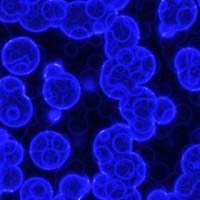Blocking This Cellular Process Could Help Mesothelioma Chemotherapy Work Better
 Researchers in California and Boston say blocking a process by which cells break down and recycle their components into new cells could make mesothelioma tumors more susceptible to chemotherapy.
Researchers in California and Boston say blocking a process by which cells break down and recycle their components into new cells could make mesothelioma tumors more susceptible to chemotherapy.
Although the process, known as autophagy, is a natural part of the lives of cells, it can also be induced by certain drugs. Emerging research suggests that the multi-stage process is not only more complex than once thought but may also play a critical role in the growth and development of cancer.
Autophagy and Malignant Mesothelioma
In a new study conducted at the University of California and Harvard Medical School, researchers used medications to inhibit autophagy in 3-dimensional fragments of pleural mesothelioma tumors before treating them with chemotherapeutic drugs.
The team found that when autophagy was inhibited in its early stages, the mesothelioma cells became more chemosensitive. When a different drug was used to inhibit autophagy at a later stage, there was no change in the cells’ sensitivity to medication.
“Our results highlight a potential role of autophagy initiation in supporting mesothelioma cells during chemotherapy,” writes lead author Carlo Follo of Zuckerberg San Francisco General Hospital at the University of California.
The autophagy-modulating drugs alone did not cause the cells to die, leading researchers to conclude that these drugs were not toxic to mesothelioma cells. Instead, their value appears to lie in their ability to make chemotherapy more effective.
Chemotherapy in the Treatment of Mesothelioma
Studies like the new autophagy report are encouraging because they suggest that chemotherapy for malignant mesothelioma could be made more effective.
Currently, even the gold standard mesothelioma drug pemetrexed (Alimta) is only moderately effective at stopping the spread of this aggressive, asbestos-induced cancer. Like many other types of cancer, malignant mesothelioma cells have developed ways to protect themselves from chemotherapy drugs.
As many as 60 percent of mesothelioma patients have little or no response to chemotherapy. Mesothelioma usually has to be treated with a multimodal approach that may also include radiotherapy, surgery, and/or emerging therapies like immunotherapy.
Source:
Follo, C, “Inhibition of Autophagy Initiation Potentiates Chemosensitivity in Mesothelioma”, October 26, 2017, Molecular Carcinogenesis, Epub ahead of print





